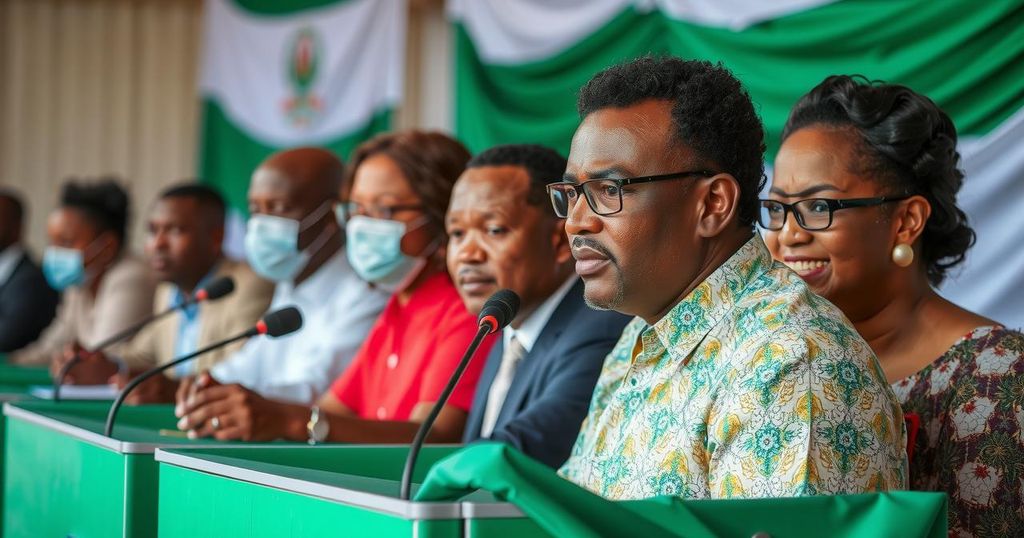Comoros Parliamentary Election: Opposition Boycotts Amidst Concerns of Authoritarianism

Comoros held a parliamentary election on Sunday, which was boycotted by various opposition parties protesting against the government led by President Azali Assoumani. The election is key for 33 legislative seats, with low expected voter turnout due to public discontent. Assoumani’s presidency has been criticized for authoritarianism and non-competitive elections, raising concerns about the electoral integrity.
On Sunday, Comoros conducted a parliamentary election that was subject to a boycott by several opposition parties. These leaders accused President Azali Assoumani and his ruling party of increasingly authoritarian practices and expressed concerns about the election’s integrity. This election will fill 33 legislative seats, with the results anticipated next week. The national electoral commission reported that approximately 330,000 registered voters exist within an 850,000 population, though opposition groups foresee low voter turnout due to widespread disillusionment with the democratic process.
President Assoumani’s Convention for the Renewal of the Comoros party had previously secured 20 out of 24 contested seats in the 2020 parliamentary election, which opposition members labeled as a “masquerade,” asserting it was neither free nor fair. Assoumani, who first seized power via coup in 1999, has faced criticism for constitutional changes that circumvented term limits and violated earlier political agreements regarding the presidential rotation among the islands.
The 66-year-old president’s tenure has seen allegations of growing political repression, as stated by the Africa Center for Strategic Studies, a research institution funded by the U.S. Congress. Despite the looming threat of Tropical Cyclone Dikeledi, officials proceeded with the voting process, emphasizing their commitment to the electoral timeline.
Comoros, an archipelago situated near Madagascar, has a tumultuous political history characterized by military coups since its independence from France in 1975. President Azali Assoumani first came into power in 1999 through a coup, showcasing a pattern of leadership marked by controversy and allegations of electoral fraud. His government has been accused of increasingly authoritarian governance, culminating in allegations of non-competitive elections and political repression. The political landscape in Comoros features multiple opposition groups that have expressed strong dissatisfaction with the current administration, further complicating the already fragile democratic framework.
The parliamentary election in Comoros highlights significant political tensions and a platform of dissent from opposition parties. Boycotting the vote reflects growing disaffection and distrust in the electoral process under President Assoumani’s rule. As the country grapples with a history of political instability and allegations of democratic backsliding, the legitimacy of this electoral process remains under scrutiny. The consequences of the election will likely influence the political climate in Comoros in the coming months.
Original Source: www.wral.com







